At first sight Kamila Mansuri (19) and Rakia Amini (21) seem to be two ordinary Afghan women but, despite their appearance, they are future life saviors of their communities by becoming midwives at the Community Midwifery Education School in Herat City.
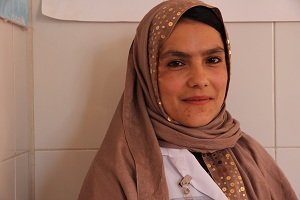
|
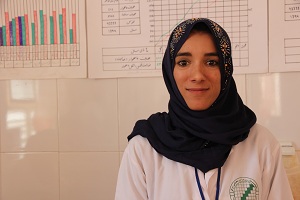
|
In Afghanistan every two hours a woman dies due to pregnancy-related complications and just 38 percent of women deliver in the presence of a skilled birth attendant, according to the Afghanistan Multiple Indicator Survey 2012.
"I saw a mother die in front of my eyes during delivery. That was the moment I decided that I could not just sit and watch. I wanted to do something for pregnant women. I wanted to save them," says Rakia.
We meet Rakia and Kamila at the Nawabat Comprehensive Health Center where, as part of their training, they are supporting the Family Planning Unit. The facility also provides maternal and newborn health services.
With a lot of confidence the students explain the use of modern contraception methods to their patients while the counsellors watch them from a distance with a sense of pride.
"At the beginning I was very insecure and felt that I didn't know anything. Now my teachers say it looks like I've been a midwife for years," says Kamila.
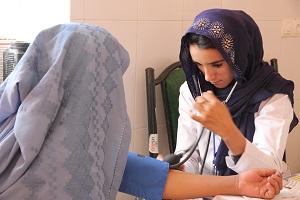
|
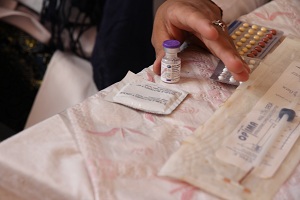
|
Just one year ago Rakia and Kamila were selected by their communities to enroll in the Community Midwifery Education School in Herat City."I was excited and scared at the same time," recalls Kamila. "It was the first time in my life to be away from my family so at times I felt alone and isolated. But soon I got to know the other girls and I got rid of those negative feelings. Now I wake up every day with a lot of energy to learn and to develop myself further. I thank God every day for the fact that I'm the one to inform women about family planning and that I'm the one who can prevent deaths among them," she continues.
Rakia didn't even dream of being selected by the village elders.
"A lot of girls took the exam so I thought that my chances were very low," recalls Rakia. "When I got selected, I could not be happier because I've always dreamt wearing a white doctor's coat. Now when I go back home on holidays, my mother invites women over so I can advise them on pregnancy related issues. This inspires other girls to become midwives and they usually ask me how they can enroll in the programme."
Once selected by their communities, the students and their families sign a commitment so the future midwife will return to the village after finalizing her studies. Each midwife is in charge of a Family Health House, a life-saving facility that provides essential maternal, newborn and child health care to 1,500 to 4,000 people.
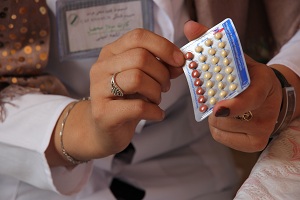
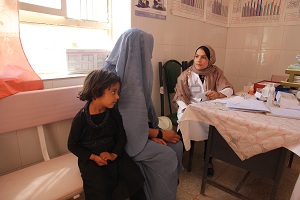
The midwife works with the community and family decision makers to ensure that women receive preventive care services. Two community health worker volunteers, one male and one female, provide support. They meet the family members separately and sensitize them about the importance of different health issues, including family planning. They also play an important role in reaching out to other girls and young women in their communities who have limited access to reproductive health information. Family Health Houses are also supported by mobile health teams, which offer technical and managerial support once or twice a month to the community midwife. They also vaccinate and provide primary health care.
Since 2009, the Ministry of Public Health with UNFPA support has established 82 family health houses and nine mobile health teams in the provinces of Faryab, Daikundi and Bamyan. By 2016 nine family health houses will be functional in the province of Herat with the financial support of the Italian Development Cooperation.


